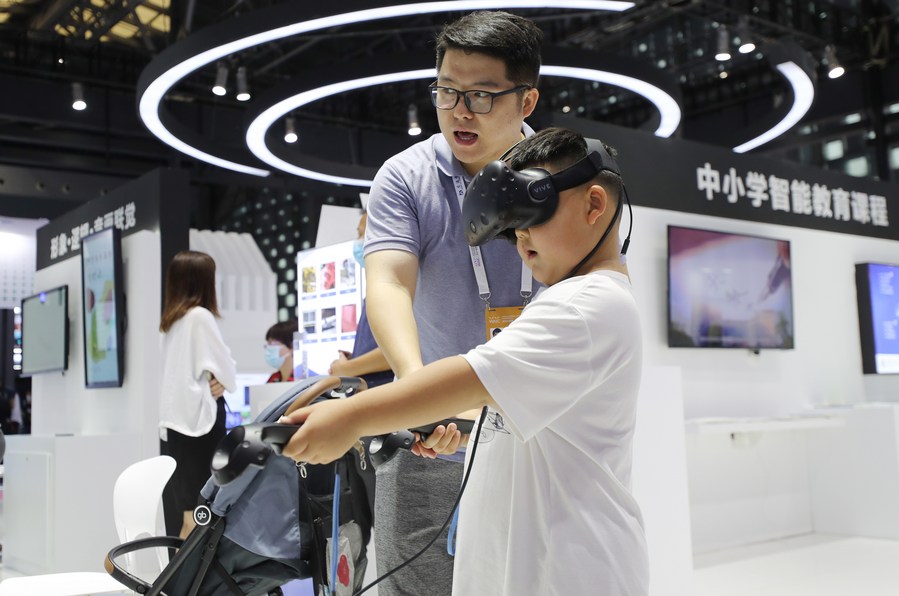Promise of metaverse boosts VR, AR prospects
 0 Comment(s)
0 Comment(s) Print
Print E-mail China Daily, November 3, 2021
E-mail China Daily, November 3, 2021

The virtual reality and augmented reality industry has ushered in new development opportunities as a string of tech heavyweights are highlighting the significance of building what is known as the metaverse.
The term is one of the hottest buzzwords for the next phase of the internet, where the virtual world and the physical world are becoming ever more interconnected, industry analysts said. A metaverse can mean virtual worlds shared by users, or digital spaces augmented by VR and AR technology.
The term metaverse was coined by science fiction writer Neal Stephenson of the United States in his 1992 novel Snow Crash. Both VR and AR technologies are fundamental components, as well as key drivers of the metaverse, and related supporting equipment can deliver an immersive, breathtaking and surreal interactive experience to consumers.
According to a report released by global market consultancy International Data Corp, a total of 2.2 million AR and VR headsets were shipped globally during the second quarter, skyrocketing by 126.8 percent compared with the same period last year.
Looking ahead, IDC expected VR shipments in 2021 to reach 8.4 million units and, by the end of 2025, to balloon to 26.7 million shipments, with a compound annual growth rate of 36 percent.
Much of this growth will be driven by additional consumers purchasing newer headsets such as the next generation of the PlayStation VR as well as the proliferation of application scenarios outside of gaming, such as virtual events and fitness, the report said.
VR headsets are seeing strong growth in 2021 from both consumer and commercial buyers, said Tom Mainelli, group vice-president for IDC's augmented and virtual reality team.
"We expect VR growth to continue well into the future as more consumer and enterprise use cases present themselves. Today, AR headsets are primarily focused on enterprise use cases, but we do anticipate consumer-focused headsets will gain traction in the later years of our forecast as major technology companies enter the space with new products.
"As companies continue to plan for a future that encompasses a combination of both in-person and remote work, we see VR playing an increasingly important role in driving next-generation collaboration, training and digital events," he said.
Some tech giants have jumped on the metaverse bandwagon and invested heavily in state-of-the-art VR and AR technologies. Chinese tech behemoth ByteDance, the owner of popular short video-sharing app TikTok, made its first foray into VR by acquiring Pico, a Chinese VR headset maker, in August.
ByteDance said Pico's comprehensive suite of software and hardware technologies, as well as the talent and the deep expertise of its team, will support their entry into the VR space and long-term investment in this emerging field.
Founded in 2015, Pico became the world's third-largest VR headset maker in the first quarter, with its shipments surging 108.6 percent year-on-year, while Facebook's Oculus led the global VR headset market, according to IDC.
Pico completed its B and B+rounds of financing in March, raising 435 million yuan ($68.1 million), and released a new generation of VR all-in-one machine, the Pico Neo 3, in May.






Go to Forum >>0 Comment(s)